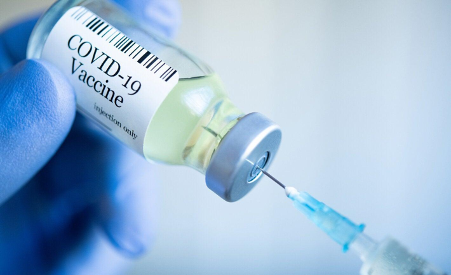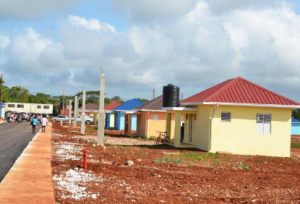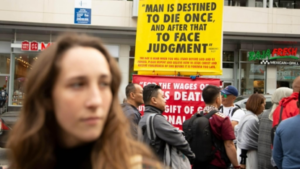Vaccine producers, like all other commercial enterprises, are in the business for profit.
Regardless of how much of the milk of human kindness they may have consumed, they exist mainly to fatten the wallets of their owners, investors, and stakeholders.
Pandemics and other health crises provide golden opportunities for manufacturers of medicine to peddle remedies to heal, fix, and push into remission every possible ailment and symptom known to man.
They try to do this with as few adverse reactions or side effects as possible, but history has established that side effects and adverse reactions to medicine are rife and are to be expected.
So when the COVID vaccines were introduced at the height of the pandemic, in record manufacturing time, profiteering riding on the wings of fear was at its optimal. Side effects and adverse reactions to these drugs were bountiful but hidden in plain sight.
Pfizer, the gold standard of the vaccines, was forced by a court early in the game to divulge a litany of side effects that it shielded from a frightened world, ready with sleeves rolled up to be injected.
Today, a plethora of court cases across countries challenge COVID vaccine claims and seek redress for injuries and death in some instances.
Sudden death from blood clots was listed as a rare adverse effect among vaccine brands. Of course, this was denied, mostly by those who were paid handsomely to promote the jabs or those who volunteered to do so out of the abundance of the foolishness in their hearts.
Ask the people in the United Kingdom. Information is now emerging that the pharmaceutical giants paid doctors and other healthcare professionals billions of British pounds to promote the drugs.
So last week, panic gripped the globe when information surfaced that AstraZeneca, one of the major COVID vaccine producers, admitted that its Vaxzevria brand of the jab “can, in very rare cases, cause TTS (thrombosis with thrombocytopenia syndrome).”
The Jamaican government wrapped itself in an eerie cloak of silence as it greeted the AstraZeneca revelation. But social media could not be contained. An eruption of posts detailed personal experiences of adverse reactions and close-up knowledge of lethal side effects as described by AstraZeneca. The signal was clear: the population had placed distance between itself and its government on the matter of the vaccines.
In fact, silence had worked for the government before, but not this time. The Pfizer revelation a year earlier was basically ignored, but with the AstraZeneca admission, the people had lived their truth.
AstraZeneca’s disclosure punched a gaping hole in the pro-vaccine push. Ca

ses of sudden deaths, menstrual disorders, thrombosis, cramping, and a host of others created a reality that could not be ignored.
For days, the Jamaican people shuddered in fear and trepidation and shared their stories, as some 27 percent of the population were injected—under duress—mainly with the AstraZeneca brand.
Stories were very personal; others were told by family and friends of the injured or deceased. A number of families are still trying to make sense of the sudden deaths of their loved ones who took the shot after the massive push by the government, private sector, and segments of the church.
Finally, the Jamaican health authorities broke their silence and took to a post-Cabinet press briefing to try to convince the people that their real-life experiences were not real and they should not believe their own eyes, ears, or bodies.
Although AstraZeneca admitted that some persons who took the vaccine had died from a rare blood clot reaction, when Jamaican health minister, Dr. Christopher Tufton, finally found his voice, he said no one in Jamaica who took that vaccine has had that reaction.
AstraZeneca made it clear that its vaccine can, in rare cases, lead to a side effect known as thrombosis with thrombocytopenia (TTS), whereby a person can suffer blood clots and also have a low platelet count.
Soon after this admission, the British firm announced it was withdrawing the vaccine globally.
On the fringes of dismissing the admission of the producer of the drug, Dr. Christopher Tufton sought to push the reporters toward the narrative that some foreign media reports may not have captured accurately the notification that was issued by AstraZeneca.
He blamed the local anti-vaccine movement and the “toxic” political climate locally for what he labelled as disinformation. He stopped short of blaming AstraZeneca for being party to this local disinformation agenda.
Tufton, who is not a medical doctor but a marketer, peddled the narrative to impressionable journalists attending the press briefing. He said that it would be “impossible” for people who took the vaccine to have those specific side effects years after taking the jab, thus dismissing current suspicions of injuries and sudden deaths.
With certain knowledge that the health ministry’s assurances were landing on deaf ears, the briefing took a weird turn and crash-landed into a ball of contradictions and utter confusion.
The journalists were told that by the second quarter of 2021, Jamaica’s health authorities were alerted that the AstraZeneca vaccine could have a side effect of blood clots, but “this complication is extremely rare, occurring in about two per 100,000 persons where there is an association for the formation of clots, and within that group of persons who can have this effect, then, of course, you will have a small percentage of persons who will have serious outcomes.”
Neither the health minister nor the chief medical officer, armed with this information in mid-2021, made any move for nearly one year to stop Jamaicans from taking this jab. Although information about the threat to life was available from the middle of 2021, Jamaica only stopped using the drug in July 2022.
When Jamaica stopped importing AstraZeneca in July 2022, some 24 percent of the population had already been vaccinated. Since that time, only three percent more of the Jamaican population has taken the jab.
Jamaica’s Chief Medical Officer, Dr. Jacquiline Bisasor-McKenzie, reassured the press briefing that the vaccine had gone through various studies and had proven to be highly effective, specifically in terms of reducing serious illnesses as well as reducing death, adding that more than three billion doses of the AstraZeneca vaccine were produced worldwide and distributed.
She pointed out that all medications could have side effects, but that the rare side effect of blood clots was not found at the time of the clinical tests.
The journalists were told that the side effects that people are concerned about tend to happen between three days and three months after inoculation. However, no explanation was provided for the cases of sudden death that have been widely reported in Jamaica up to the week of the briefing.
Interestingly, within 24 hours after the briefing, news emerged in the international space that rare but deadly blood clots have also been tied to Johnson & Johnson COVID-19 shots.
It must be a tough call for any drug company, having done their internal research and invested billions into marketing a brand, to turn around and admit that the product can cause death, even in one single case. But AstraZeneca and, now, Johnson and Johnson have done this.
One more thing, Dr. Tufton, can you please tell us if the people who died suddenly since the advent of the COVID vaccines were vaccinated?
The people are beginning to pay attention.






